
Remembrance – Thomas Kettle
Today we commemorate the 100th Anniversary of the death of Thomas Kettle of Bourne and also of the 15th battalion Sherwood foresters.
Thomas was born in 1884 in Bourne to William Kettle and agricultural Labourer born in Little Bytham and his wife Mary Sandall born in Morton. They were married in September 1866 in Bourne and had 11 children, Thomas being the youngest.
John William Kettle, 1867, Bourne
Sarah Ann Kettle, 1869, Bourne
Edward Kettle, 1871, Bourne
Arthur Albert Kettle, 1872, Bourne
Mary Elizabeth Kettle, 1874, Bourne
Richard Partridge Kettle, 1876, Bourne
Edward Kettle, 1876, Bourne
Charles Robert Kettle, 1877, Bourne
Rebecca Kettle, 1879, Bourne
Walter Kettle, 1882, Bourne
Thomas Kettle, 1884, Bourne
William passed away before 1890 leaving Mary with the large family. By 1891 Thomas can be found living with his mother in Bedehouse Bank, Bourne, with 4 of his siblings. Mary was supporting them by working as a washwoman and 15 year old Edward working as a labourer.
Thomas has not been found on the 1901 census and by 1911 he is working as a labourer on a farm at Long Sutton and living with the Taylor family.
Thomas’ war records have not been found and like 60% of all WW1 records they are believed to have been destroyed in the Blitz when the warehouse containing them was bombed.
It is known that Thomas enlisted in Lincoln and was posted to the 15th Battalion Sherwood Foresters (Notts and Derby Regiment). Thomas was not entitled to a 1915 star and so we can assume that he first saw service abroad with the battalion after 1915. The 15th Battalion was a bantam battalion and took men who were 5ft 3inches and under. This normally meant that the men posted to the Battalion were physically very strong and usually came from a labouring or mining background.
As we are not sure when Thomas was posted abroad we can only look at his last month with the regiment with any certainty that he was part of the actions that are described in the Battalion Diaries.
Although the 15th battalion were ordered to Egypt in late 1915, this was cancelled and their first overseas posting was in February 1916 to France where the Battalion fought in the Battle Somme.
We take up the story on the 1st October 1917 in the middle of the 3rd Battle of Ypres also known as the battle of Passchendaele. The Battalion had spent most of the year in the sector near Peronne, previously being in are Arras area.
1st October 1917 – Aizecourt Le Bas
Battalion conveyed to Peronne in Motor Lorries. Transport moving by road.
2nd – 3rd October 1917 – Peronne
Resting and refitting,. Battalion entrained at Peronne at 12 midnight 23rd inst. en route for XVII Corps area and detrained at Arras at 4-30am. 4th inst. proceeding by march route to billets at Warlus. Part of the battalion transport under command of 2nd Lieut R.T Wright. proceeded by road halting on the night of the 3rd inst at Bapaume and continuing march on the 4th inst. arrived at Warlus at 12 noon.
3rd to 12th October – Warlus
Re-organization of Companies and Battalion training.
13th October – Warlus
Battalion (Less “Z” Cmpany.) entrained at Arras Station at 12-54pm and detrained at Cassel at 8-30pm marching to billets at Arneke.
Ltr “Z” Company entrained at Arras at 8-54pm and detrained at Cassel at 3am 14th inst.
15th October – Arneke
Battalion (Less transport) entrained at Arneke at 12 noon and detrained at Proven about 2-30pm marching to D4 camp
16th October – Proven
Entrained to Proven at 12 noon and detrained at Elverdinghe.
Battalion relieved 1st Scots Guards at Rugby Camp. Transport moved by road and occupied camp near Woeston.
17th to 20th October – Elverdinghe
Reconnaisance of line South of Houthulst Forest preparatory to attack.
Furnishing of working parties to assist in preparing forward gun positions.
20th October
At 5pm Battalion moved to Gouvy Farm near Boesinghe
21st October
Battalion moved to assembly positions as supporting Battalion to 105th Brigade in general attack on morning of 22nd inst on enemy positions South of Houthulst Forest.
22nd October
Operations South of Houthulst Forsest
Casualties from 21st to 23rd
Killed – 1 officer, 15 other ranks
Wounded – 1 officer, 160 other ranks
Missing – 1 officer, 20 other ranks
24th October
Relief of Battalion by 19th Durham Light Infantry completed at 3am Companies moved out independantly to billets at Larry Camp near Elverdinghe.
25th to 28th October – Elverdinghe
The Battalion relieved 5th Border Regiment in right sector Divisional Front by 7-30pm
Enemy very quiet whilst relief was taking place. Between 9pm and 11pm enemy put down a strong defensive barrage close behind our forward line, remainder of night was quiet.
30th October
Casualties 1 officer and 4 other ranks killed. 1 officer and 14 other ranks wounded.
At 4am enemy opened heavy artillery fire on the ground immediately behind our front line, developing in intensity at dawn. About 6am several of the enemy were seen running about in Wood East of Marechal House. Several were knowcked out by snipers at Ltr. “X” Company.
Situation quietened down by 8am and remainder of day fairly calm.
31st October
Quiet on the whole. Occasional heavy bursts of artillery fire on Battalion H.Q. and support positions. From 4-30pm onwards the enemy sent over constant streams of gas shells on our back areas.
Thomas Kettle was killed in action on the 29th October and we have to assume killed during the artillery barrage in the late evening on that night.
Commonwealth War Graves Commission:
In memory of Private Thomas Kettle, 50186, 15th Battalion, Sherwood Foresters (Notts and Derby Regiment) who died on 29 October 1917
Remembered with honour, Tyne Cot Memorial.


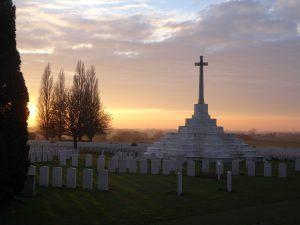
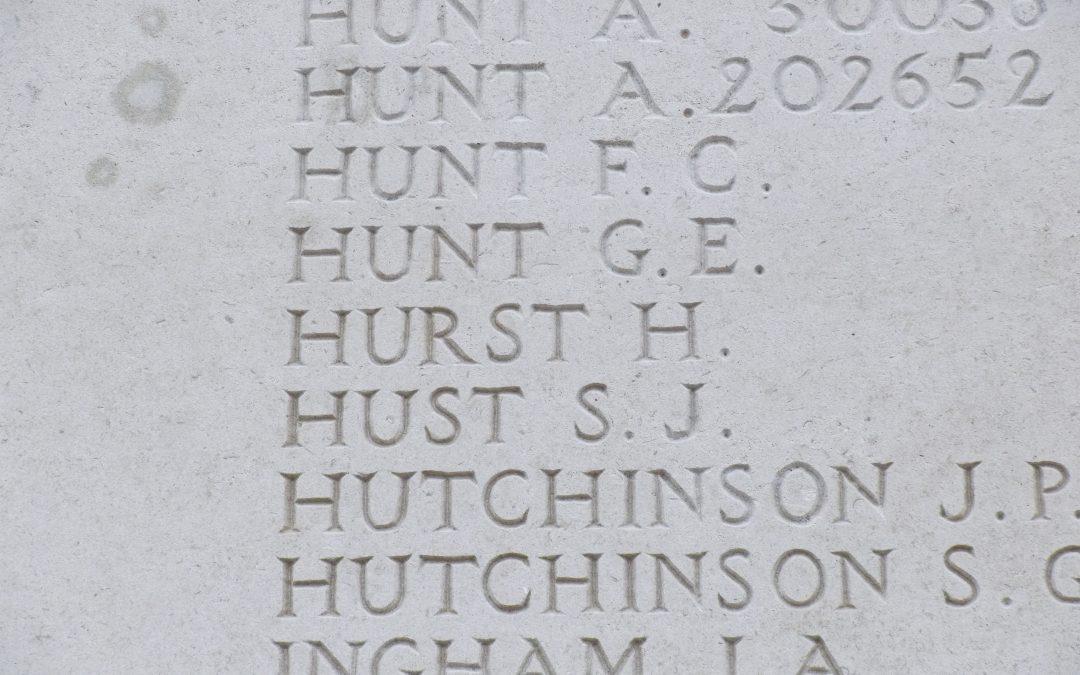
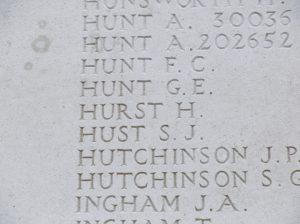

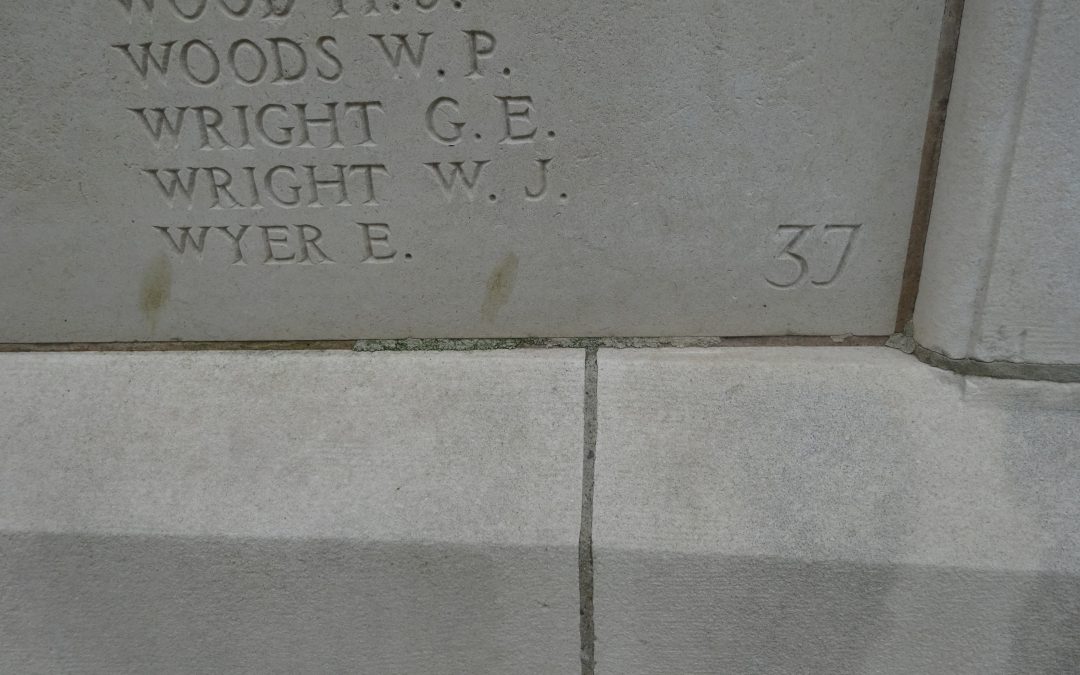
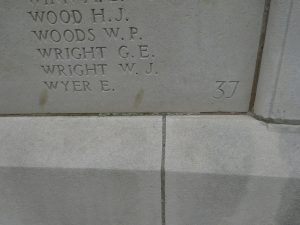

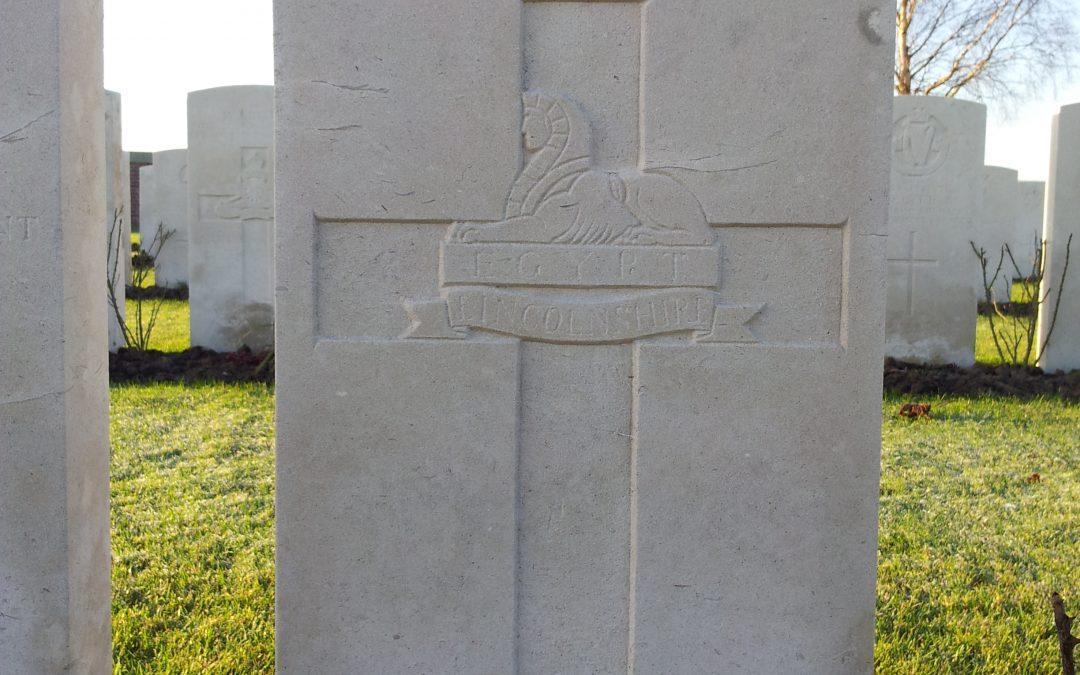



Recent Comments